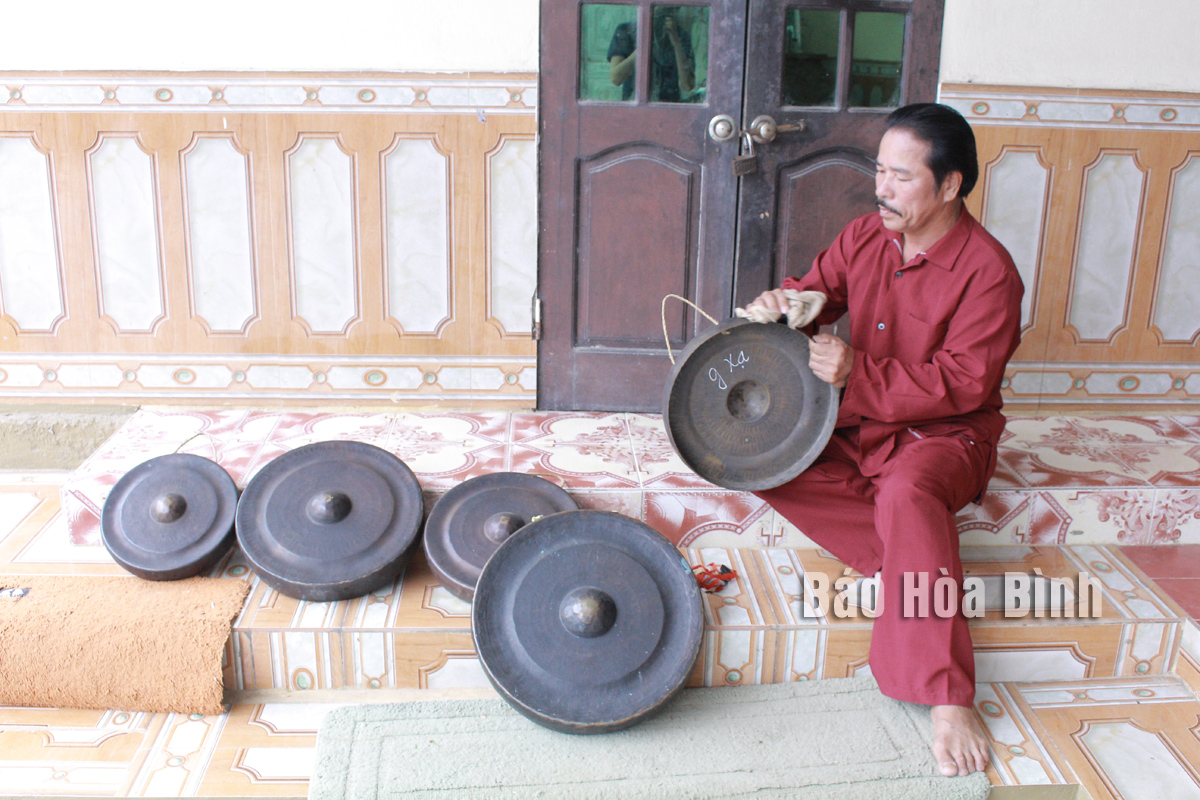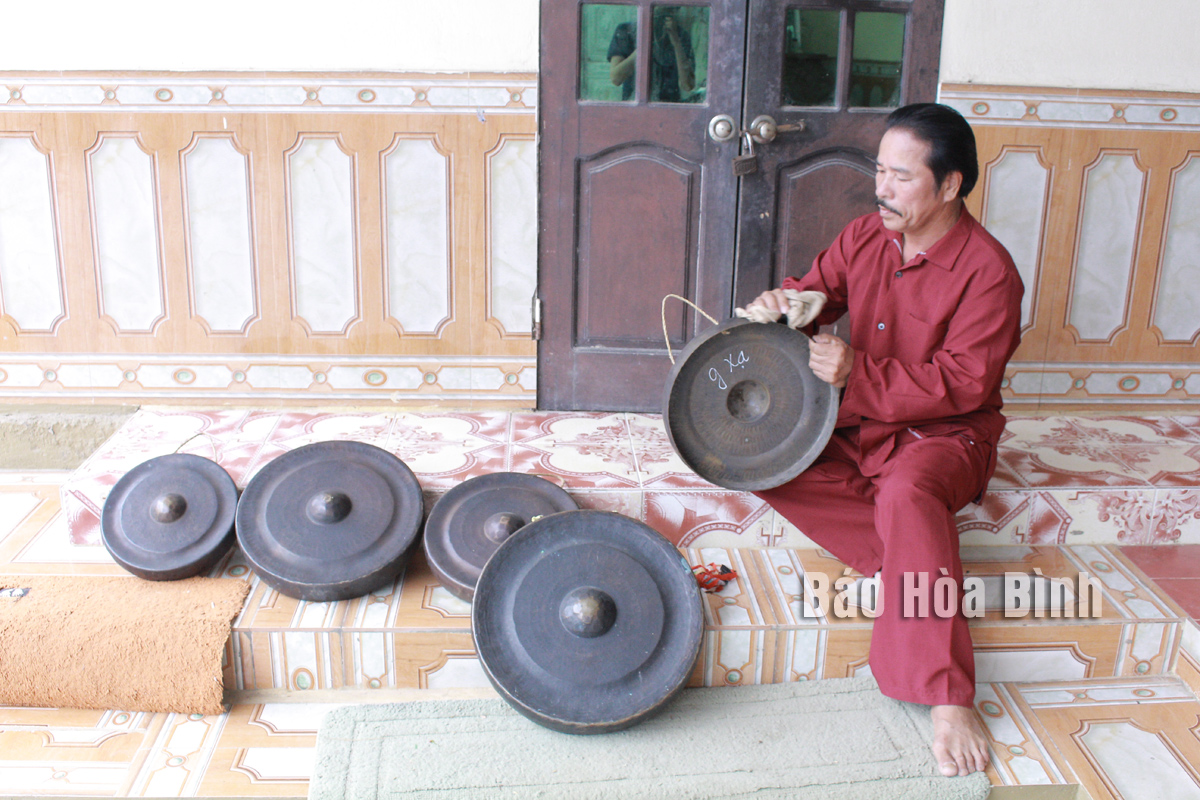
With his love for traditional musical instruments, at the age of over 60, artisan Hoang Van Vien, Gieng Xa hamlet, Cu Yen commune (Luong Son), still maintains his passion and enthusiasm. He actively participates in performing folk songs and dances, and teaches Muong gongs to younger generations with a desire to preserve and promote traditional cultural values.
Artisan Hoang Van Vien, Gieng Xa hamlet, Cu Yen commune (Luong Son), cleans his Muong gongs.
A Muong ethnic member, Vien started learning to play Muong gongs in 1981 and since then, he has always been enthusiastic and passionate about the Muong ethnic culture, regularly participating in cultural programmes. He is often invited to folk performances on major holidays and competitions in the district and province.
To preserve the beauty of the traditional culture, he has taught many others in his village on how to play Muong gongs. Vien shared that Muong gongs are the soul of the ethnic group’s music. "We place into it the optimistic spirit and life philosophies of our people. With gongs, we can play solo, in chorus and use them in love songs, folk songs and dances... I want to preserve and pass them on to younger generations so that the ethnic cultural identity is not lost.”
Over the recent years, Cu Yen has strengthened the management, preservation and promotion of Muong ethnic cultural values, including language, customs, beliefs, cuisine, and costumes. It has encouraged all people to participate in building and developing an advanced culture imbued with national identity. Currently, the commune has two Muong gong teams with three sets of gongs and 36 pieces.
Bui Dinh Luan, Vice Chairman of the commune People's Committee, said that in order to preserve and further promote the cultural identity of the Muong ethnic group, the committee regularly organises cultural exchange activities; commends units that care about preserving ethnic cultural traditions; and promotes the role of village elders in teaching the beauty of ethnic culture to the younger generations.
With an increasingly vibrant and widespread emulation movement aimed at building cultured residential areas and cultured families, Yen Thuy District has been making steady progress toward improving both the material and spiritual well-being of its people, while fostering a civilized, prosperous, beautiful, and progressive community.
Once lacking recreational spaces and community facilities, Residential Group 2 in Quynh Lam Ward (Hoa Binh City) has recently received attention for the construction of a new, spacious, and fully equipped cultural house. The project followed the model of state support combined with public contributions in both labor and funding.
The "All people unite to build cultural life" movement, which has been effectively integrated with Kim Boi district’s socio-economic development goals, is fostering a lively spirit of emulation across local residential areas, hamlets, villages, public agencies, and enterprises. In addition, through the initiative, traditional cultural values are being preserved and promoted, while community solidarity and mutual support in poverty reduction and economic development are being strengthened.
A working delegation of the Hoa Binh provincial People’s Committee led by its Permanent Vice Chairman Nguyen Van Toan on June 11 inspected the progress of a project to build the Mo Muong Cultural Heritage Conservation Space linked to tourism services in Hop Phong commune, Cao Phong district.
Born and growing in the heroic land of Muong Dong, Dinh Thi Kieu Dung, a resident in Bo town of Kim Boi district, in her childhood was nurtured by the sweet lullabies of her grandmother and mother. These melodies deeply imprinted on her soul, becoming an inseparable part of her love for her ethnic group's culture. For over 20 years, this love for her hometown has driven Dung to research, collect, and pass down the cultural values of the Muong people to future generations.
In the final days of May, the Ethnic Art Troupe of Hoa Binh Province organized performances to serve the people in remote, mountainous, and particularly disadvantaged areas within the province. These were not just ordinary artistic shows, but they were the meaningful journeys aimed at spreading cultural values, enhancing the spiritual life of the people and contributing to the preservation of ethnic minority cultural identities.



